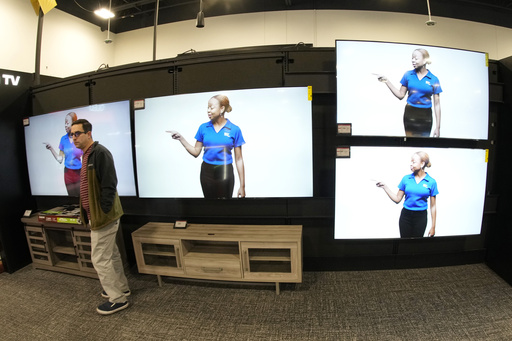Best Buy, the leading consumer electronics retailer in the United States, announced a decline in sales in the latest quarterly report. This drop was a result of consumers cutting back on purchasing non-essential items like appliances and electronics. However, the company’s performance exceeded expectations on Wall Street, leading to a 17% increase in its stock value.
Despite the sales decrease, Best Buy’s CEO Corie Barry noted that the business is stabilizing. She mentioned that customer focus remains on seeking deals during specific sales events like the 4th of July, Black Friday in July, and back-to-school promotions. Digital and physical store sales in July were highlighted as the best of the quarter.
The company experienced growth in tablet and computing sales, as well as services, which compensated for declines in appliances, home theater, and gaming products. Best Buy remains strategic in its pricing approach, aiming to balance profitability and sales effectively.
Consumers have been impacted by high prices and elevated interest rates, influencing their spending habits. While economic reports indicate mixed trends, consumers are currently prioritizing experiences like travel and entertainment over gadget purchases.
Best Buy is adapting to these changes by modernizing its stores, enhancing paid membership services, and investing in employee training. The retailer introduced certified experts in computing, with plans to expand into home-theater and major-appliance departments. New product offerings, like AI-enhanced personal computers, are expected to attract customers with improved efficiency and longer battery life.
Moreover, Best Buy unveiled a new live-tracking feature using AI, allowing customers to monitor deliveries and installations of large items like TVs and appliances. The company reported earnings of $291 million for the quarter, with sales totaling $9.29 billion. Comparable sales, combining online and in-store purchases, decreased by 2.3%.
For the fiscal year, Best Buy adjusted its revenue outlook to $41.3 billion to $41.9 billion, with projected comparable sales declining by 1.5% to 3%. Earnings per share are expected to range from $6.10 to $6.35. Analysts had predicted earnings of $6.07 per share on sales of $41.75 billion for the year.


